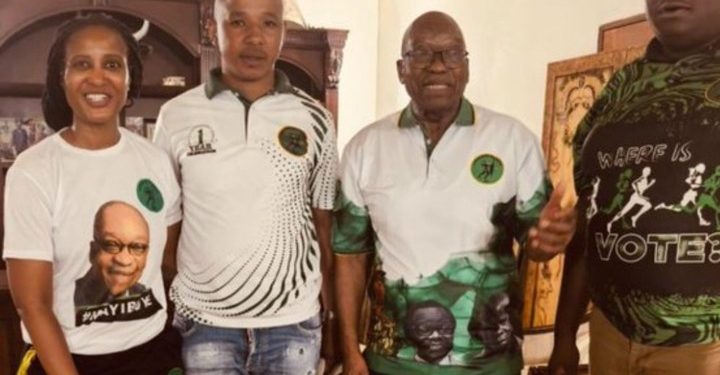In a blow to the fledgling uMkhonto weSizwe (MK) Party, Thabiso Molefe—the councillor for Ward 45 in Rustenburg—has resigned from both his position and the party with immediate effect. His departure deals a significant setback to the party’s expansion efforts, coming just months after his August 2024 by-election victory marked the MK Party’s first ward win outside KwaZulu-Natal.
Molefe, a grassroots-focused leader, had gained recognition for tackling local issues such as water shortages and electricity disruptions in Rustenburg. His resignation leaves a leadership vacuum in Ward 45 and fuels speculation about internal discord within the MK Party, which has faced a series of expulsions and factional disputes since its formation under former President Jacob Zuma.
Internal Strife or Strategic Exit?
While Molefe has not publicly detailed his reasons for leaving, his past criticism of MK Party leadership offers clues. He previously supported expelled Mpalanga leader Mary Phadi and openly clashed with Secretary-General Floyd Shivambu, accusing him of destabilizing the party. This suggests his resignation may be tied to growing disillusionment with the party’s direction.
Alternatively, Molefe’s exit could reflect strategic recalibration—either a personal step back from politics or a move to distance himself from the MK Party’s controversies, which have included legal battles and allegations of internal purges.
A Setback for MK’s Expansion
Molefe’s victory in Rustenburg had been a symbolic breakthrough, proving the party could compete beyond its KZN stronghold. His abrupt departure now raises doubts about the MK Party’s ability to retain talent and maintain electoral momentum ahead of the 2026 local government elections.
For Rustenburg residents, his resignation introduces uncertainty at a time when service delivery challenges demand stable leadership. For the MK Party, it underscores the fragility of its growth—can it consolidate support while managing internal divisions?
Broader Implications
Analysts suggest Molefe’s exit highlights a recurring theme in South Africa’s political landscape: young parties often struggle to transition from populist movements to structured organizations. The MK Party’s reliance on Zuma’s influence has not insulated it from infighting, and losing pragmatic figures like Molefe risks alienating voters seeking substance over symbolism.
What’s Next?
Attention now turns to Molefe’s next move—whether he will join another party, return to community activism, or exit politics entirely. Meanwhile, the MK Party faces mounting pressure to address its internal governance or risk further erosion of public trust.
Opinion: A Wake-Up Call for the MK Party
Molefe’s resignation should serve as a reality check. The party’s early momentum was built on anti-ANC sentiment, but sustaining it requires cohesion and credible leadership. If the MK Party cannot resolve its internal strife, it risks becoming another cautionary tale in South Africa’s turbulent political arena.
As the dust settles, one thing is clear: the MK Party’s ambition to rival the ANC will remain an uphill battle unless it can prove it’s more than just a protest vehicle—and that starts with keeping its best leaders on board.






















